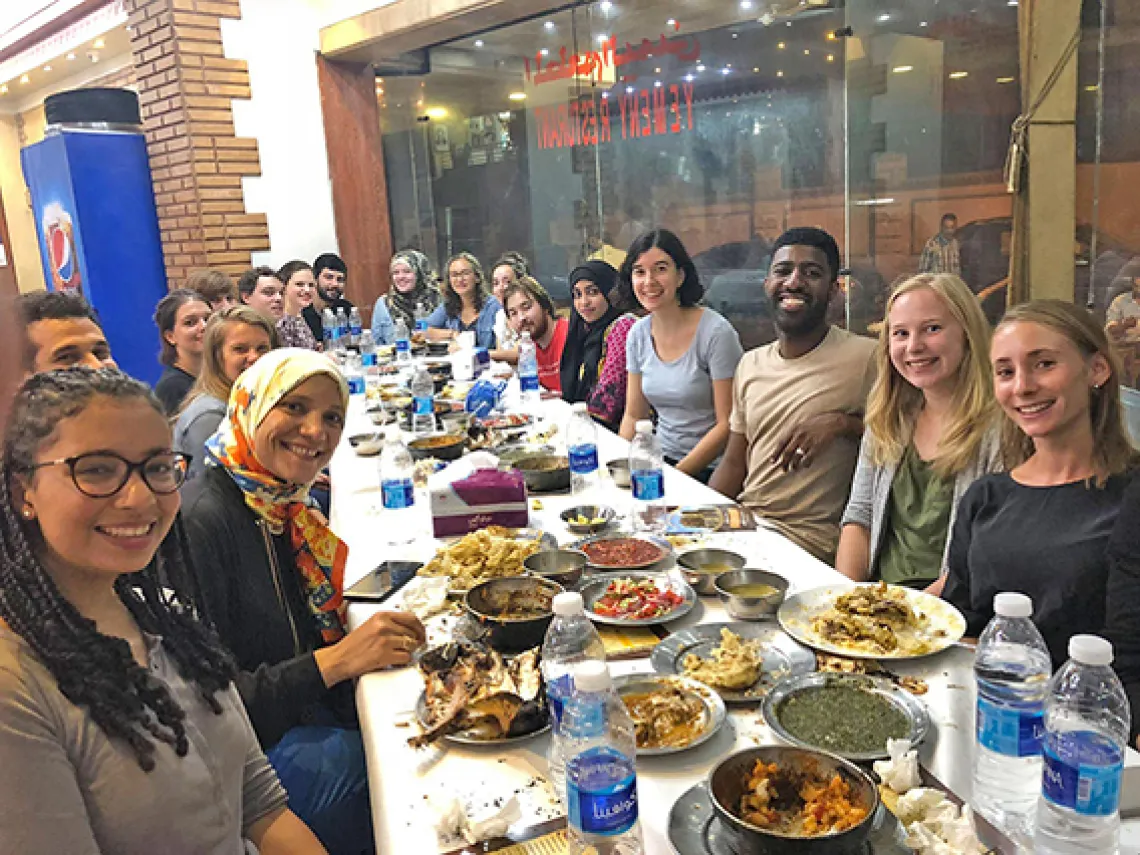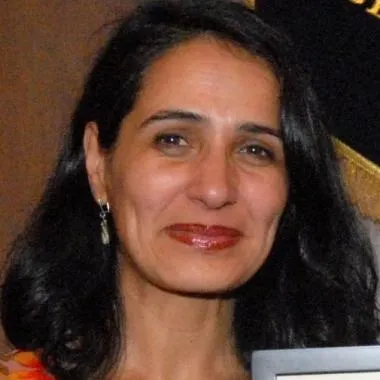Prestigious Center for Arabic Study Abroad Moves to the University of Arizona

Every year, a fresh crop of students from across the country are chosen as fellows of the Center for Arabic Study Abroad, or CASA. CASA fellows embark on a year of intensive study in the Middle East in pursuit of a higher command of the Arabic language and culture. Acceptance into CASA is considered the pinnacle of Arabic training, and its graduates go on to impact the landscape of Arabic and Middle Eastern studies, as well as U.S-Middle East policy.
The University of Arizona has been named the new host of CASA, taking over the responsibility from Harvard University. Sonia Shiri, an associate professor in the UA School of Middle Eastern and North African Studies, was chosen as the new director.
CASA will be housed in the School of Middle Eastern and North African Studies in the College of Social and Behavioral Sciences. The UA will take over management of the program for a minimum of five years, beginning on June 1, 2019.
“This new honor further solidifies the UA’s status as home to one of the best Arabic programs in the country,” said John Paul Jones III, dean of the College of Social and Behavioral Sciences. “We are honored to host CASA and look forward to working with CASA’s partners to ensure this highly esteemed program continues to thrive.”
“The UA’s commitment to promoting international studies and languages, and Arabic in particular, is fully aligned with CASA’s mission and objectives,” said Nevenka Korica Sullivan, current director of CASA at Harvard University. “It is with great enthusiasm that the CASA Governing Board and I are working towards the transfer of CASA leadership to the University of Arizona.”
The Gold Standard of Arabic Training
The Center for Arabic Study Abroad was established in 1967 to offer year-long, intensive Arabic language training, which is provided at the American University in Cairo, Egypt, and, more recently, at the Qasid Institute in Amman, Jordan.
CASA has more than 1700 alumni, who, according to the CASA website, “have defined U.S.-Middle East relations for the last half-century through their work in the U.S. State Department, academic institutions, and the private sector.”
CASA is represented by a consortium of 30 universities in the United States and is funded by the U.S. Department of Education, under the Fulbright-Hays Group International Study Abroad Program, as well as by private endowments.

Depending on funding and security issues, CASA accepts around 20-35 fellows a year from across the country. Eligible students are mostly graduate students with a minimum of three years of formal instruction in Arabic.
As the director of CASA, Shiri will have the opportunity to shape the future of the program, working with the governing board, the resident directors at the overseas sites, instructors and fellows. Shiri will also collaborate with UA Global’s Study Abroad office.
“This is a critical program,” Shiri said. “It is widely perceived as the gold standard of Arabic training and is a highly prized, must-have experience for fellows launching into academia, government or other professions.”
Shiri says she is committed to providing future CASA fellows with rich learning experiences rooted in the culture of their Arab host environment yet fueled by cutting-edge research and efficient pedagogical practices. She also hopes to revive the CASA II and CASA III programs that offer intensive refresher courses for CASA alumni and professors of Arabic and Middle Eastern Studies, respectively.
While Shiri is excited about the possibility of influencing the entire Arabic field through this central program, she is also keen to integrate what she learns from directing CASA into the UA’s Arabic program.
“I will get a chance to bring to our UA programs successes from the CASA program and also nurture new partnerships with the highly regarded Jordanian Qasid Institute and the American University in Cairo, which is the original home of CASA and a vehement supporter of its mission,” Shiri said.
Excellence in Arabic Instruction at the UA
“CASA’s move to the UA demonstrates that the UA is a focal point for Arabic study and reinforces the decision I made to pursue my graduate work here,” said Aaron Graybill, a graduate student in the School of Middle Eastern and North African Studies. “Additionally, this move fits with the Arabic program's commitment to building professional proficiency.”
The UA is one of only seven institutions in the country selected to participate in the Arabic Flagship program, which helps undergraduate students reach superior-level fluency in Arabic. Likewise, the UA is one of a few campuses that offer Arabic Project Global Officer, or Project GO, which improves the language competency, regional expertise and intercultural communication skills of ROTC students. Both projects involve study abroad and are federally funded by the National Security Education Program. The UA also offers an Arabic major and a growing Jumpstart Arabic program for high school students and incoming UA freshmen.
At the heart of this constellation of achievement is Sonia Shiri, who is director and principal investigator of the UA’S Arabic Flagship and Project GO programs. Shiri has served as the senior academic director for the U.S. Department of State’s Critical Language Scholarship Arabic summer intensive programs abroad. She was also recently elected chair of the Language Flagship Council representing a consortium of 21 universities and eight languages.
“As director of the National Middle East Language Resource Center, I worked with Professor Shiri on a number of projects,” said Professor Kirk Belnap, a former governing board member of CASA and director of Brigham Young University’s Arabic Flagship Program. “When I heard that she will be running CASA, I was thrilled. She brings great strengths to a very important job.”
“Dr. Shiri is fearless, creative, and experimental in her approaches to program design and implementation, to say nothing of her groundbreaking work in developing instructional technologies,” said former CASA fellow Elizabeth Saylor. Saylor, now an assistant professor of Arabic at Middlebury College, worked under Shiri’s leadership at UC Berkeley and in the Critical Language Scholarship Program in Tunisia.
Saylor added: “Dr. Shiri is an energetic and hands-on leader who succeeds in keeping the group morale high, motivating and inspiring students, instructors, and staff alike to work together to achieve levels of Arabic proficiency that are literally off the charts,” Saylor said. “The CASA program, in my opinion, could not be in better hands.”
Shiri said that having two major Arabic programs – the Arabic Language Flagship and CASA – together in one place will contribute to the advancement of the field as a whole.
“Dr. Shiri will be able to draw on the best practices in proficiency based Arabic language developed and strengthened through the Language Flagship program as she assumes the additional role of the director of the Center of Arabic Study Abroad,” said Sam Eisen, the director of programs for the Defense Language and National Security Education Office and the director of the Language Flagship program. “This is a prime example of synergy between the Language Flagship program and other leading language education programs in preparing students effectively for national security and other international careers."

